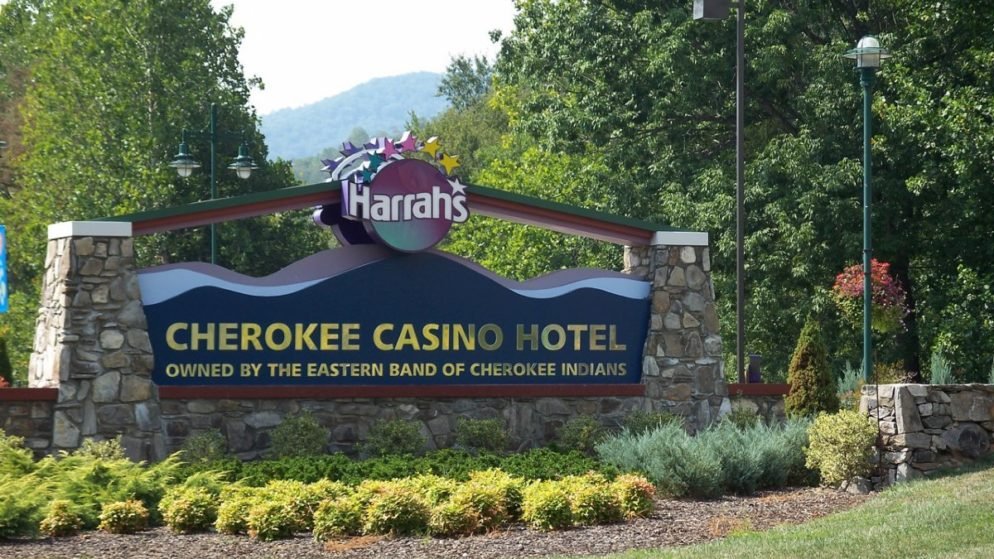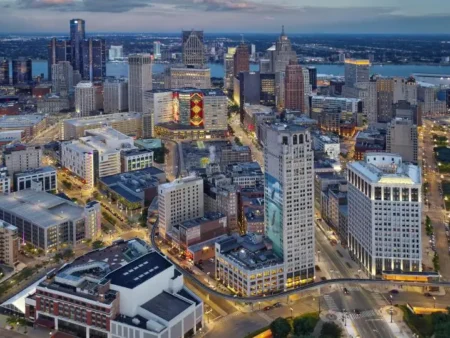

North Carolina’s two Cherokee casinos, Harrah’s Cherokee Valley River in Murphy and Harrah’s Cherokee Casino Resort in Cherokee, will soon welcome back smokers.
On Thursday, The Eastern Band of Cherokee Indian’s (EBCI) Tribal Council voted in favor of a law that only allows indoor casino smoking in specially designed enclosed areas. The smoking containments must prevent any flow of smoke or vapor onto the common gaming floor, where smoking will be prohibited.
The Cherokee casinos previously permitted indoor smoking in designated areas. However, those areas were not fully partitioned from the purportedly smoke-free sections.
Macau, the world’s richest casino market, has long used such isolated smoking structures inside their casinos. The highly technical structures continually emit contaminated air outside while allowing fresh air.
Pandemic testing ground
The Cherokee casinos did not require to abide by any state order regarding their operations during COVID-19 since the gaming resorts are on tribal sovereign land. However, EBCI leaders still suspended indoor smoking voluntarily during the 2020 spring due to COVID-19.
Despite tobacco use being prohibited, tribal executives reported that gaming revenue figures have not been negatively affected.
“We made a lot of money without cigarettes, pipes, and cigars being lit up on our casino,” EBCI Councilmember Teresa McCoy said.
McCoy added that many casino employees have thanked the tribal council for the pandemic-related smoking ban. Cherokee Principal Chief Richard Sneed, a self-described gambler, said he has enjoyed visiting the casino without the smoke.
However, senior vice president and Harrah’s Cherokee general manager, Brooks Robinson, said a significant number of guests have shown frustration about not being able to light up while gambling. It’s why the general manager of the tribe’s flagship casino backed building separate, completely enclosed gaming structures where smoking will be allowed.
Indoor casino smoking will remain forbidden until such structures are built. The tribe did not specify their size or a deadline for when they may be completed.
The tribe says the smoking areas will only be staffed by workers willing to work in the environment.
Tribal benefits
Cherokee assembly leaders say limiting casino smoking to small enclosed areas will benefit the tribe in various ways regarding its resort operations. Lavita Hill, who drafted the casino smoking amendment, says smoking-free casinos are more attractive to potential employees.
Hill adds that health insurance premiums could be cut, and employees will likely use fewer sick days due to being employed in a smoke-free business. Each casino’s fire and liability insurance costs might also be reduced, Hill opines. And that’s not all.
“Cleaning and maintenance costs go down. Immediately, our Cherokee people will become healthier,” she said.
The two casinos recently carried out a guest survey concerning smoking. Fifty-four percent of respondents said they would “likely visit more” if the major casino floors were completely free of tobacco smoke. Eighteen percent said they would visit less, and the remaining 28% said there are indifferent.
Tribal casinos are a section of the national trend of casinos going smoke-free. The American for Nonsmoker’s Rights reports that 1,038 casinos in the US are 100% smoke-free.
Industry opposition
The Casino Association of New Jersey (CANJ), which represents the nine gaming resorts in Trenton, continues to oppose the state mandating that indoor tobacco smoking be prohibited for gamblers.
However, casinos in nearby states, including New York, Delaware, and Maryland, are entirely smoke-free. In August, the Atlantic City Council voted to support Senate Bill 1878, which permanently seeks to stop indoor smoking in New Jersey.
Atlantic City’s brick-and-mortar casinos are thriving well in 2021. Through 10 months, land-based gross gaming revenue (GGR) from table games and slot machines totals approximately $2.14 billion. That is 75% better than last year, but almost 5% lower than 2019, when GGR stood at $2.25 billion through 10 months.
Last Updated on by Ryan













